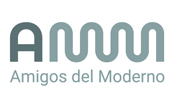As a public museum, the Museo de Arte Moderno de Buenos Aires aims to cultivate values related to culture, tolerance, diversity, inclusion, accessibility and care for the environment.
We therefore acknowledge our responsibility as a key actor in rethinking the future of our planet and of society in general.
To fulfil the aim of integrating sustainability into our agenda, the museum adopts the following commitments:
– We embrace diversity, practising equity and ensuring accessibility and inclusion. The values of diversity, equity, access and inclusion (DEAI) will guide our actions to generate impact and set us on a path towards continuous transformation. We aim to create an inclusive environment in all of our spaces where our team, artists and the community feel reflected and valued for their diverse perspectives.
– We aim to raise awareness, inform and create dialogues with our audiences through cultural and artistic programmes and exhibitions that reflect the crucial issues of the day.
– We will contribute to improving humanity’s impact on our planet’s ecosystems by implementing significant actions and reducing our carbon footprint.
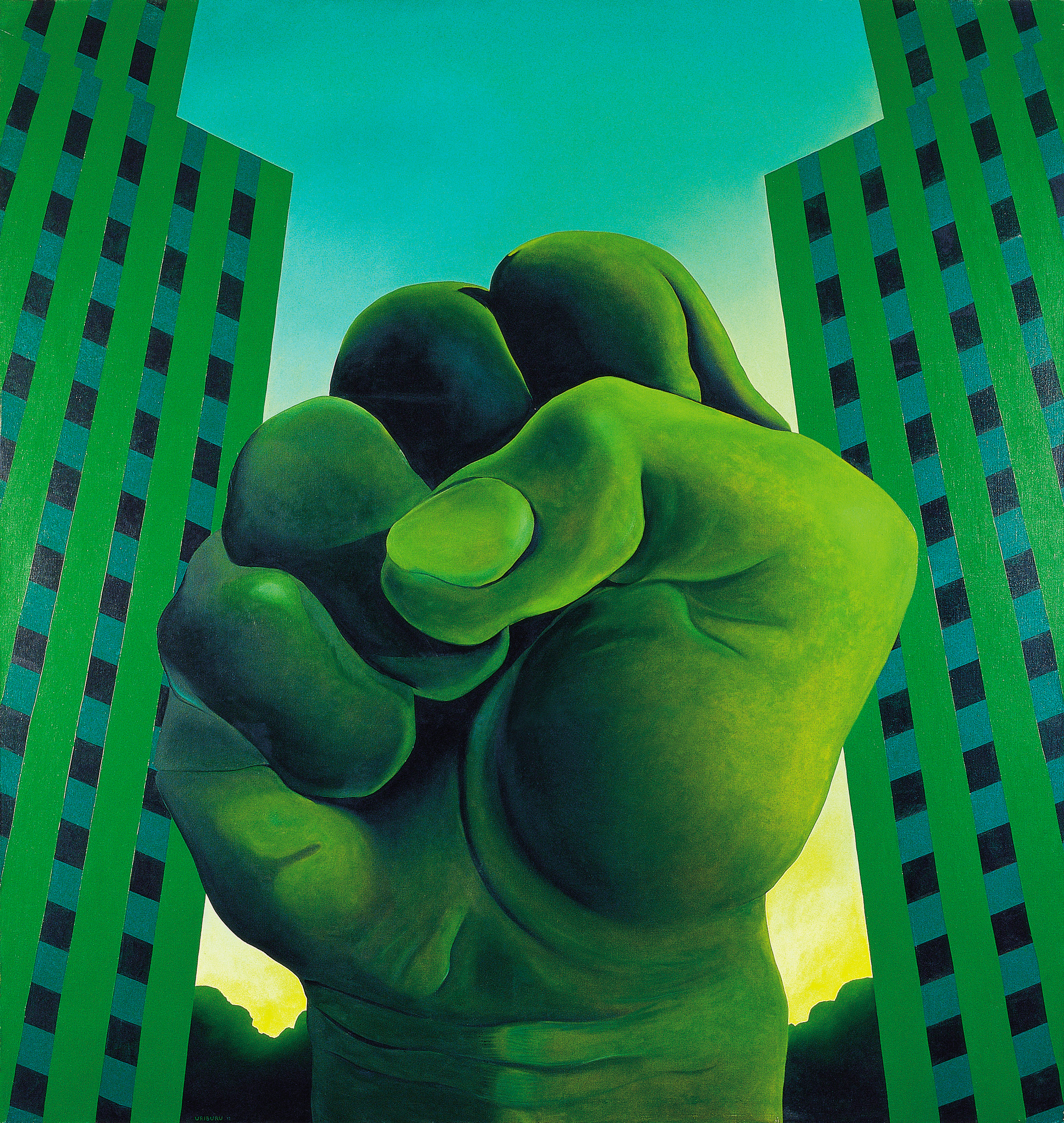
The Museo Moderno aims to become a benchmark space in terms of sustainable development. To do so, we have taken into account the social, environmental and economic aspects of the 2030 Sustainable Development Goals, grouped into the ‘5 Ps’, in accordance with the criteria of the International Council of Museums (ICOM):
– People: Social sustainability and DEAI (diversity, equity, accessibility, inclusion).
– Planet: care for the environment.
– Prosperity: ethics, fund development, responsible procurement.
– Partnerships.
– Peace.
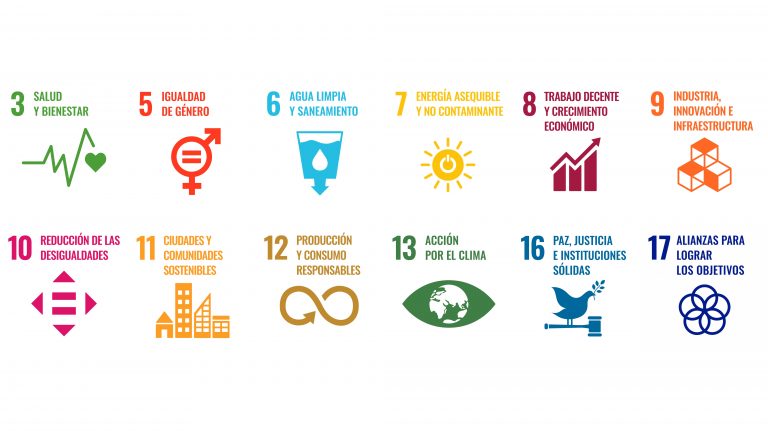
In line with the Carbon Neutrality by 2050 plan adopted by the world’s largest cities, including the City of Buenos Aires, the Museo de Arte Moderno has measured its carbon footprint in order to understand its environmental impact and implement actions to reduce it. The measurement included a greenhouse gas (GHG) assessment of the emissions generated by the museum’s operation, including its energy consumption, waste management, travel by museum staff, among other factors. In 2022, the museum produced 372.53 tonnes of emissions, as certified by the Agencia de Protección Ambiental de la Ciudad de Buenos Aires (APrA) [Environmental Protection Agency of the City of Buenos Aires].
A carbon footprint is the calculation of the amount of greenhouse gas emissions produced by humans during their daily activities and aims to help adopt measure to reduce CO2.
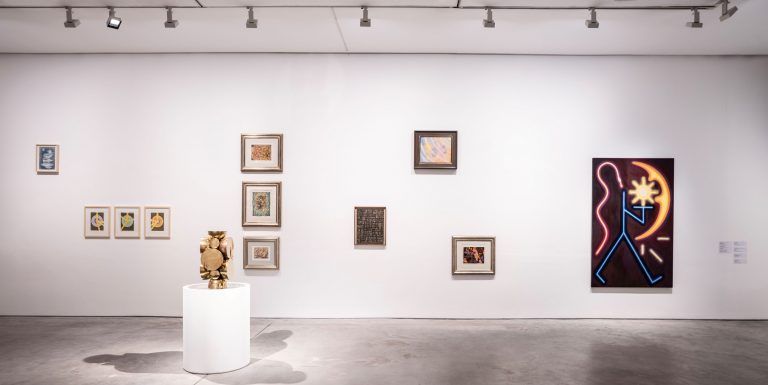
✓ Halogen bulbs replaced with LED spotlights in gallery lighting.
✓ More efficient air-conditioning systems and environmentally-friendly filters.
✓ Switch-on and switch-off times for lights.
✓ Water-saving systems in bathroom sinks.
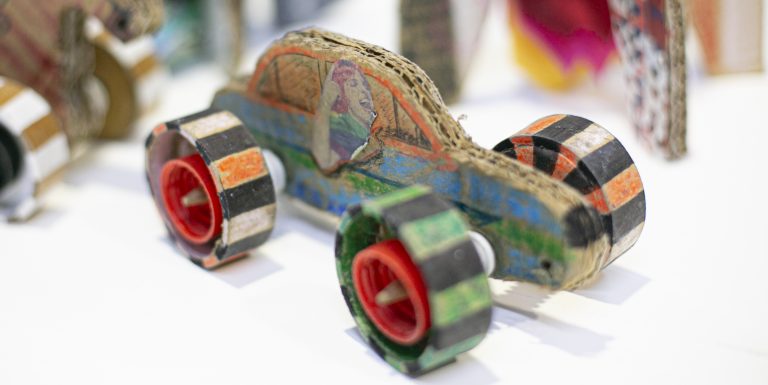
✓ Individual rubbish bins removed and replaced with separate bins designated for paper and cardboard, rubbish, batteries and lamps.
✓ Collaboration with Cooperativa SUR urban recyclers.
✓ Materials from exhibitions reused.
✓ Use of biodegradable cleaning products.
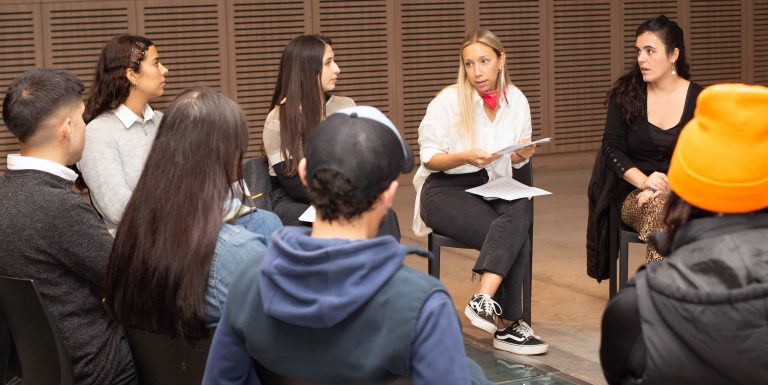
✓ Sustainability roundtables held with all team members.
✓ Workshops and courses conducted to raise awareness among staff with regard to strategies for environmental improvements.

✓ Water is sold in recyclable containers.
✓ Plastic has been eliminated from product packaging and recycled materials are used in accordance with the regulations of the City of Buenos Aires.
✓ Use of straws made from recyclable materials.
✓ Use of reusable tableware.
✓ Discounts for bringing your own cup and for coming to the museum by bicycle.
✓ Especies nativas de plantas: Salvia Guaranitica , Verbena rastrera violeta, Glandularia platensis y Salvia Uliginosa
Acompañan al proyecto sustentable
